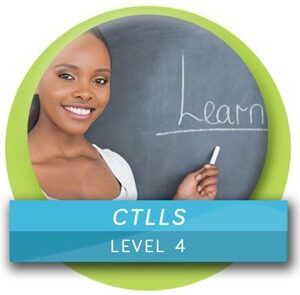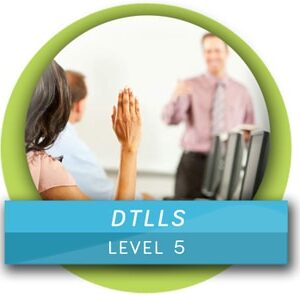Description
INTRODUCTION TO THE QUALIFICATION
The Level 5 Diploma in Education and Training (QCF) qualification is regulated by Ofqual. The Level 5 Diploma in Education and Training (QCF) is a new qualification which replaces the Level 5 Diploma in Teaching in the Lifelong Learning Sector (QCF).
QUALIFICATION PURPOSE
The Level 5 Diploma in Education and Training (QCF) is suitable for teachers, trainers and tutors working in further education, adult and community learning or work-based training within public, private, voluntary or community organisations. It prepares trainee teachers to teach in a wide range of contexts and requires observation and assessment of practice. Teaching practice is a requirement of the qualification.
It can meet the needs of a range of trainee teachers, including:
- Planning and developing schemes of work
- Delivering learning sessions
- Developing teaching and learning strategies
- Assessment practices
A range of optional units are available, including some units from the Learning and Development suite. These
units require practice to be assessed.
The purpose of the qualification in the QCF is to ‘Confirm competence in an occupational role to the standards required’ (D1).
Learners must be willing to undertake an initial assessment of their skills in English, mathematics and ICT, record their development needs and follow an action plan.
Some units from the Learning and Development suite may be achieved within this qualification. These units
require practice to be assessed in the trainee teacher’s place of work. Further details can be found in the ‘structure of the qualification’ section.
Centre should read the following documents to ensure that delivery of these qualifications meets the minimum
requirements as stated by LSIS.
Teaching and Training Qualifications for the Further Education and Skills Sector in England (2013) Guidance for initial teacher education providers April 2013 Qualification Guidance for awarding organisations Level 4 Certificate in Education and Training (QCF).
ENTRY REQUIREMENTS
There may be a requirement by the employer for learners to be checked by the Disclosure and Barring Service:
https://www.gov.uk/disclosure-barring-service-check/overview or if they intend to work with learners who are
covered by these regulations (formerly Criminal Records Bureau (CRB)). It is the learner’s responsibility to seek advice from their employer regarding this.
Learners must meet the following minimum criteria:
- Reading and communication skills should be adequate to meet the requirements of the training.
- Do not have a criminal background which prevents them working, with young people or vulnerable adults, as a teacher.
- Hold a relevant qualification at a level above that of their learners; ideally at least Level 3 in their area of specialism
- Minimum core of literacy, language, numeracy and ICT
The minimum core of literacy, language, numeracy and ICT details the knowledge, understanding and personal
skills in English, mathematics and ICT expected of all teachers in the sector. The minimum core document comprises three sections:
- Language and literacy
- Numeracy
- Information and communication technology (ICT).
Each of these sections comprises two parts:
- Part A Knowledge and understanding
- Part B Personal skills.
Knowledge, understanding and personal skills requirements for literacy, language, numeracy and ICT are included in the teaching qualifications. Details can be found in the document, Addressing Literacy, Language, Numeracy and ICT needs in education and training: Defining the minimum core of teachers’ knowledge, understanding and personal skills. A guide for initial teacher education programmes (LLUK, 2007; updated LSIS, 2013).
REQUIREMENTS FOR KNOWLEDGE AND UNDERSTANDING ELEMENTS
Elements of the minimum core should be selected appropriate to the context and needs of each cohort of trainee teachers. The selected elements should be delivered and assessed across the following units:
- Teaching, learning and assessment in education and training (Level 4)
- Developing teaching, learning and assessment in education and training (Level 5).
REQUIREMENTS FOR PERSONAL SKILLS IN ENGLISH, MATHEMATICS AND ICT ELEMENTS
All trainee teachers joining this qualification should undertake an initial assessment of skills in English, mathematics and ICT.
They should record their development needs and, where applicable, agree an action plan to address them. If
trainees join the qualification having already undertaken an initial assessment of their English, mathematics and ICT skills, their record of development needs (including any previous action taken to address them) should be reviewed and updated as required.
If trainees join the qualification having already completed a Level 3 Award in Education and Training or a Level 4 Certificate in Education and Training, their record of development needs and any previous actions taken to address them, should inform opportunities to continue the development of these skills. As required by the appropriate minimum core elements.
Opportunities to develop these personal skills should be made available across the mandatory units as a
minimum. LSIS supports opportunities to develop these skills throughout a teacher education programme. Teacher education teams should ensure that the personal skills developed by trainees are those most apropriate for their professional role.
ENTRY REQUIREMENT FOR SPECIALIST OPTIONAL UNITS
Potential teacher trainees wishing to take any of the specialist optional units will need to evidence Level 3 personal skills in English or mathematics, as appropriate.
This entry requirement applies to all Level 5 diploma qualifications for teachers of English (literacy and/or ESOL)and mathematics (numeracy) detailed in this and other LSIS qualification guidance documents.
The entry criteria, and how they may be evidenced, are detailed in the separate document, Criteria for entry to mathematics (numeracy) and English (literacy and ESOL) teacher training in the lifelong learning sector (LLUK, June 2007, amended 2010).
LINKS TO OTHER QUALIFICATIONS IN THE EDUCATION AND TRAINING SUITE
Individuals are not required to have achieved a Level 3 Award in Education and Training (QCF) or a Level 4
Certificate in Education and Training (QCF) before undertaking a Level 5 Diploma in Education and Training
(QCF). However, some individuals may already have completed one or both of these qualifications.
Individuals who have completed the Level 3 Award in Education and Training (QCF) and who are progressing
directly to the Level 5 Diploma in Education and Training (QCF) cannot bring forward any credit or observed and assessed practice.
Individuals who have completed the Level 4 Certificate in Education and Training (QCF):
- who are progressing to an HEI-validated qualification at Level 5 or above may have their level 4 credit recognised in line with that higher education institution’s arrangements for the recognition of prior learning (RPL). Learners who are progressing to an AO-accredited Level 5 Diploma in Education and Training (QCF) should have their prior achievement recognized.
Notes: RPL will apply between the mandatory credit from the Level 4 Certificate in Education and Training (QCF) and the Level 4 unit Teaching, learning, and assessment in education and training from the Level 5 Diploma of Education and Training (QCF). Trainees should not be required to present further evidence other than that necessary to demonstrate that their prior learning is at Level 4. - may use some of the evidence for practice, including observed and assessed practice, to meet the practice requirements for the Level 4 unit Teaching, learning and assessment in education and training and towards the overall minimum practice requirements, including observed and assessed practice requirements, for the Level 5 Diploma in Education and Training (QCF). Further details are provided in Annex 2.
Since 2007, individuals have been able to undertake one of the standalone specialist qualifications prior to taking a generic teaching qualification, alongside the generic teaching qualification (concurrently) or afterwards. If an individual already holds one of the specialist standalone qualifications and wishes to undertake a generic teaching qualification, they can use the units towards the optional credit requirement for the Level 5 Diploma in Education and Training (QCF). There may also be opportunities to use some of the assessed observation of teaching and practice hours from the standalone specialist qualifications towards the Level 5 Diploma in Education and Training (QCF). Further details are provided in Appendix 3.
Learners must be at least 19 years of age at commencement of the qualification.
PROGRESSION
Successful learners can progress to other qualifications such as:
- Level 5 Diploma in Teaching English: ESOL
- Level 5 Diploma in Teaching English: Literacy and Functional English
- Level 5 Diploma in Teaching English: Literacy, ESOL and Functional English Progression
- Level 5 Diploma in Teaching Mathematics: Numeracy and Functional Mathematics
- Level 5 Diploma in Teaching Disabled Learners.
STRUCTURE
Learners must achieve a minimum of 120 credits from two unit groups to be awarded the Level 5 Diploma
in Education and Training (QCF).
Learners must achieve a minimum of 61 credits at Level 5
Group A – 75 credits
Group B – 45 credits
There is a requirement for a minimum of 100 hours of practice.
| Unit no. | Unit title | Unit Reference | Level | Credit Value | GLH |
| Group A Twenty one (21) credits must be achieved from this group | |||||
| 1 | Developing teaching, learning and assessment in education and training (Note that achievement of the unit Theories, principles and models in education and training is a pre-requisite for this unit) |
R/505/0923 | 5 | 20 | 65 |
| 2 | Teaching, learning and assessment in education and training | H/505/0912 | 4 | 20 | 65 |
| 3 | Theories, principles and models in education and training (Note that achievement of this unit is a pre-requisite for the unit Developing teaching, learning and assessment in education and training). |
A/505/0818 | 5 | 20 | 60 |
| 4 | Wider professional practice in education and training | J/505/0837 | 5 | 15 | 50 |
| Group B Fifteen (15) credits must be achieved from this group | |||||
| 5 | Action research | T/503/5380 | 5 | 15 | 50 |
| 6 | Delivering employability skills | M/505/1089 | 4 | 6 | 20 |
| 7 | Develop and prepare resources for learning and development (Learning and Development unit) | A/502/9547 | 4 | 6 | 25 |
| 8 | Develop learning and development programmes (Learning and development unit) | M/502/9545 | 4 | 6 | 30 |
| 9 | Developing, using and organising resources within a specialist area | H/505/1090 | 5 | 15 | 50 |
| 10 | Effective partnership working in the teaching and learning context | Y/503/5310 | 4 | 15 | 50 |
| 11 | Engage with employers to facilitate workforce development | D/502/9556 | 4 | 6 | 30 |
| 12 | Equality and diversity | Y/503/5789 | 4 | 6 | 25 |
| 13 | Evaluating learning programmes | K/505/1091 | 4 | 3 | 15 |
| 14 | Identify the learning needs of organisations (Learning and Development unit) | H/502/9543 | 4 | 6 | 30 |
| 15 | Inclusive practice | L/503/5384 | 4 | 15 | 50 |
| 16 | Internally assure the quality of assessment (Learning and Development unit) | A/601/5321 | 4 | 6 | 45 |
| 17 | Manage learning and development in groups (Learning and Development unit) | A/502/9550 | 4 | 6 | 30 |
| 18 | Managing behaviours in a learning environment | M/505/3912 | 5 | 6 | 20 |
| 19 | Preparing for the coaching role | J/505/0188 | 4 | 3 | 15 |
| 20 | Preparing for the mentoring role | L/505/0189 | 4 | 3 | 15 |
| 21 | Preparing for the personal tutoring role | L/505/T/505/1093 | 4 | 3 | 15 |
| 22 | Teaching in a specialist area | J/505/1096 | 4 | 15 | 50 |
| 23 | Specialist delivery techniques and activities | R/504/0229 | 4 | 9 | 30 |
| 24 | Understanding and managing behaviours in a learning environment | Y/505/1099 | 4 | 6 | 20 |
| 25 | Understanding the principles and practices of externally assuring the quality of assessment (Learning and Development unit) | F/601/5322 | 4 | 6 | 45 |
| 26 | Understanding the principles and practices of internally assuring the quality of assessment (Learning and Development unit) | T/601/5320 | 4 | 6 | 45 |
| 27 | Action learning for teaching in a specialist area of disability | J/505/0756 | 5 | 15 | 40 |
| 28 | ESOL and the learners | F/505/0786 | 5 | 15 | 40 |
| 29 | ESOL theories and frameworks | A/505/0785 | 5 | 15 | 40 |
| 30 | Literacy and ESOL and the learners | L/505/0791 | 5 | 20 | 60 |
| 31 | Literacy and ESOL theories and frameworks | J/505/0790 | 5 | 20 | 60 |
| 32 | Literacy and the learners | L/505/0774 | 5 | 15 | 40 |
| 33 | Literacy, ESOL and the learners | Y/505/0776 | 5 | 15 | 40 |
| 34 | Literacy theories and frameworks | J/505/0773 | 5 | 15 | 40 |
| 35 | Numeracy and the learners | K/505/0765 | 5 | 15 | 40 |
| 36 | Numeracy knowledge and understanding | H/505/0764 | 5 | 15 | 40 |
| 37 | Understanding theories and frameworks for teaching disabled learners | Y/505/0759 | 5 | 15 | 40 |
GUIDED LEARNING HOURS
qualification; therefore, learners could take up to 1200 hours to achieve it. These hours are made up of contact
time with a teacher/assessor, often referred to as guided learning hours (GLH), and non-contact time for
independent study and practice.
The recommended GLH for this qualification is a minimum of 360.
25 Understanding the principles and practices of
externally assuring the quality of assessment
24 Understanding and managing behaviours in a learning
environment
ASSESSMENT
Centres are able to choose appropriate assessment methods providing all the requirements of the qualification
can be met. Centres should take a holistic approach where possible i.e. giving learners the opportunity to
demonstrate several assessment criteria from different units at the same time. Academic referencing e.g. using
quotes from text books within learners’ work is a requirement at level 4 and level 5.
Learning journals are a good way of documenting progress and achievement, but are not a formal requirement.
Examples of assessment methods for this qualification include:-
- Aassignments
- Case studies
- Checklists
- Essays
- Observations
- Online assessments
- Portfolio of evidence
- Professional discussion
- Projects
- Questions – written and oral
- Rreflective learning journal
- Self-evaluation and action plan
- Written statements
- Worksheets.
All learning outcomes must be met to achieve a Pass – there is no grading.
TEACHING PRACTICE REQUIREMENT
There is a requirement for a minimum of 100 hours of practice and a requirement to evidence working with
groups of learners to achieve this qualification.
The practice component is a vital aspect of high-quality initial teacher training.
There are different practice requirements for each unit in this qualification. In addition, details of the practice
requirements for the optional units are available in the separate guidance document, Qualification guidance for
awarding organisations: Optional units for QCF Education and Training qualifications (LSIS, 2013).
Appendix 1
summarises the practice requirement for the mandatory units and for the optional units.
The practice requirements for the optional units are detailed within the relevant unit guidance.
Effective teaching practice experience should ideally include:-
- Different teaching practice locations/settings/contexts;
- Teaching across more than one level;
- Teaching a variety of learners;
- Teaching individuals and groups;
- Experience of non-teaching roles; and
- Gaining subject-specialist knowledge through workplace mentoring.
Trainee teachers should have access to as many of these as possible during their teaching practice.
A sample form for a session plan can be found in
Appendix 4.
OBSERVED AND ASSESSED PRACTICE REQUIREMENTS:
There must be a minimum of eight observations totalling a minimum of eight hours. This excludes any observed
practice completed as part of the Level 3 Award in Education and Training (QCF). Any single observation must be
a minimum of half an hour.
Observations should be appropriately spaced throughout the whole programme and take into account a trainee
teacher’s progress.
For the Education and Training units, practice must be in a teaching and learning environment. As stated above,
there is a requirement for a minimum of eight observations of practice. The eight observations must be linked to
the following mandatory units:
- Teaching, learning and assessment in education and training (Level 4)
- Developing teaching, learning and assessment in education and training (Level 5).
The centre recommends that a holistic approach should be taken to observed and assessed practice. This is so
that each observation and assessment of practice enables trainee teachers to provide evidence for the two units
identified above.
To be eligible for the award of credit for any one of the above two units, a trainee teacher must be able to
provide evidence of a minimum of two assessed observation of practice that meet the required standard of
practice. To be eligible for the award of credit for all both units, a trainee teacher must be able to provide
evidence of a minimum of eight assessed observations of practice that meet the required standard of practice.
Also, note that achievement of the unit Theories, Principles and Models in Education and Training (Level 5) is a
prerequisite for achievement of the unit Developing Teaching, Learning and Assessment in Education and
Training (Level 5).
At least four hours of observed and assessed practice in observations linked to the mandatory units should
demonstrate grade 2 characteristics.
Some optional units from the Education and Training suite also require practice, including observation and
assessment of practice. The number of observations of practice required and the number of hours to be observed
and assessed are not specified for these optional units. These requirements are in addition to the observed and
assessed practice requirements for the mandatory units identified above and summarised in Appendix 1.
The practice requirements and the observation of practice requirements for these optional units are given in the
separate guidance document, Qualification guidance for awarding organisations: Optional units for QCF
Education and Training qualifications (LSIS, 2013).
For some optional units taken from the Learning and Development qualification, practice must be in a real work
environment and in the appropriate context, with groups of learners or with individual learners. The number of
practice hours required and the number of hours to be observed and assessed are not specified for Learning and
Development units. These requirements are in addition to the observed and assessed practice requirements for
the mandatory units identified above and summarised in
Appendix 1.
The practice requirements and the observation of practice requirements for the Learning and Development
optional units, are given in the separate qualification guidance documents.
Guidance on assessing observations and a sample feedback form can be found in
Appendix 5.
These requirements are in addition to the observed and assessed practice requirements for the mandatory units
identified above.
TRANSFER OF PRACTICE
There is no transfer of practice, including observed and assessed practice, from a previously achieved Level 3
Award in Education and Training.
Trainee teachers who have achieved the Level 4 Certificate in Education and Training can transfer twenty hours of
practice and two hours of observed and assessed practice towards the practice requirements for the Level 5
Diploma in Education and Training.







Reviews
There are no reviews yet.